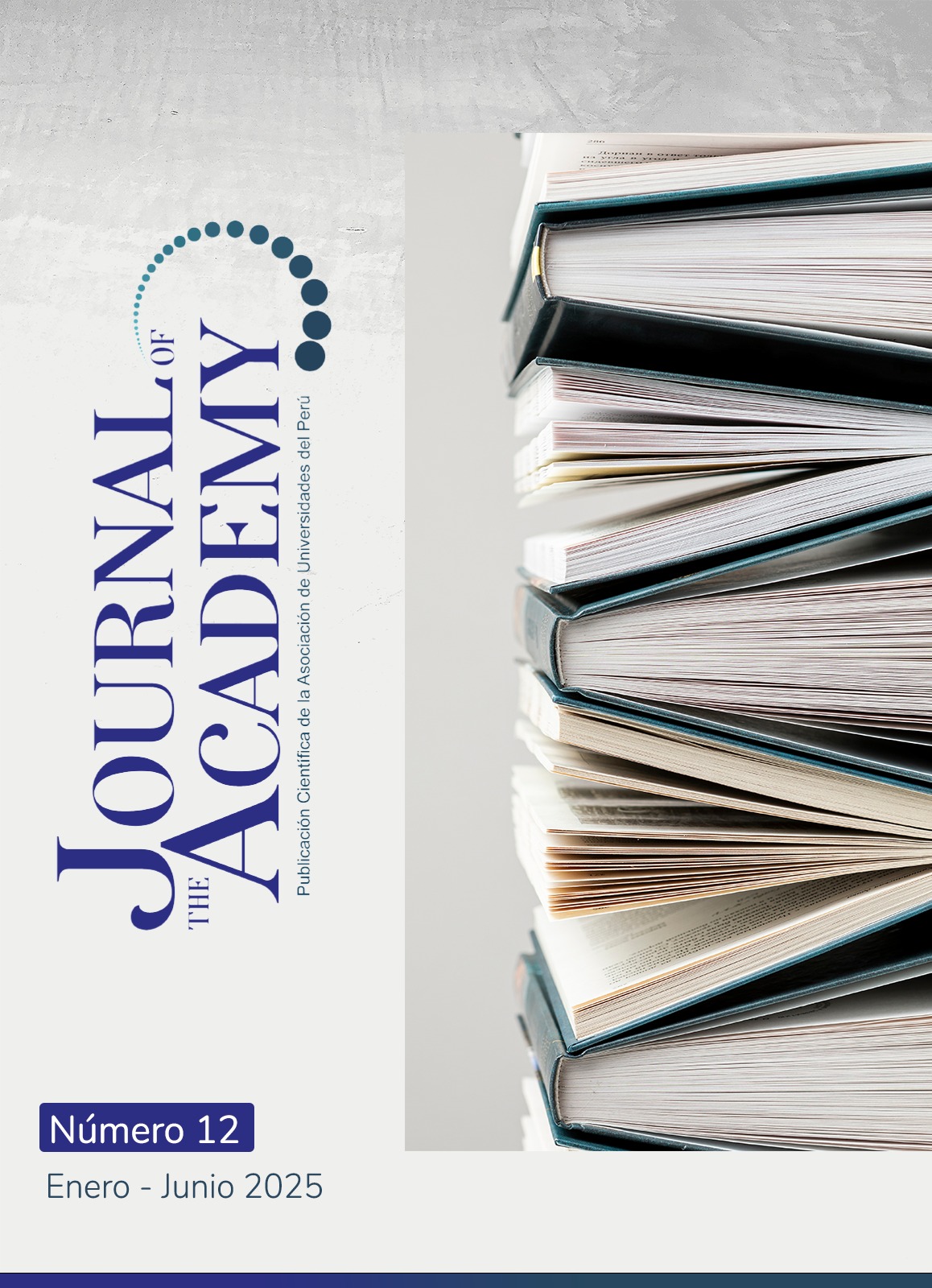Application of high-impact learning methodologies in Language, Communication, and Arts courses
DOI:
https://doi.org/10.47058/joa12.6Keywords:
teaching methodologies, educational innovation, meaningful learningAbstract
This article examines the pedagogical practices adopted by educators in the fields of Language, Communication, and Arts. The significance of this study lies in the necessity to understand teaching practices as a central element in enhancing student engagement and knowledge construction within these domains. The research question investigated was: How do the methodologies adopted by educators foster meaningful learning among students in the courses of Language, Communication, and Arts? The qualitative and exploratory research was conducted with three educators representing the areas of Arts (D01), Language (D02), and Communication (D03). Data were collected through semi-structured interviews, supplemented by direct observations in classes taught by the participants. Content analysis facilitated the categorization of methodological practices and the assessment of their relationship with learning processes. The results indicated that educators employed diverse approaches, such as practical activities in Arts, debates in Language, and interactive technological tools in Communication. While these methodologies were effective in promoting active participation, they faced challenges such as resource limitations and the need for greater adaptation to students' specificities. Key considerations highlight the importance of ongoing professional development for educators and the implementation of interdisciplinary practices that foster meaningful learning. The study acknowledges the limitation of analyzing a small number of participants but contributes to the discourse on pedagogical innovation in the social sciences and humanities.
Downloads
References
Arroyo, M. G. (2000). Ofício de mestre: imagens e auto-imagens. Biblioteca Central. http://www1.urisantiago.br/conteudos/arquivos/Arquivo-a517f8f70d23d356bb97f1a925826f68.pdf
Barbosa, A. F. y Kramer, S. (2007). Contemporaneidade, educação e tecnologia. Educação & Sociedade, 28(100), 1037-1057. https://doi.org/10.1590/S0101-73302007000300019
Bardin, L. (2016). Análise do conteúdo (Trad. L. Antero Reto y A. Pinheiro). (Trabajo original publicado en 1977). Edições 70.
Barr, R. B. y Tagg, J. (1995). From teaching to learning—A new paradigm for undergraduate education. Change: The magazine of higher learning, 27(6), 12-26. https://doi.org/10.1080/00091383.1995.10544672
Barreto, R. G. (2004). Tecnologia e educação: trabalho e formação docente. Educação & sociedade, 25(89), 1181-1201. https://doi.org/10.1590/S0101-73302004000400006
Bonwell, C. C. y Eison, J. A. (1991). Active learning: Creating excitement in the classroom. 1991 ASHE-ERIC higher education reports. ERIC Publications. The George Washington University, School of Education and Human Development.
Cavalcanti, C. C. y Filatro, A. (2018). Metodologias inovativas na educação presencial, a distância e corporativa. Saraiva Educação SA.
Clark, R. C. y Mayer, R. E. (2016). E-Learning e a Ciência da Instrução: Diretrizes comprovadas para consumidores e designers de aprendizagem multimídia. Pfeiffer & Co.
Dos Santos, W. L. P. y Mortimer, E. F. (2009). Abordagem de aspectos sociocientíficos em aulas de ciências: possibilidades e limitações. Investigações em Ensino de Ciências, 14(2), 191-218. https://ienci.if.ufrgs.br/index.php/ienci/article/view/355
Faculdade de Ciências da Linguagem, Comunicação e Artes. (s.f.). Nossa Missão. PesquiseMoz. https://escolasecursos.pesquisemoz.com/faculdade-de-ciencias-da-linguagem-comunicacao-e-artes/
Flick, U. (2009). Desenho da pesquisa qualitativa Artmed.
Fonseca, S. M. y Mattar, J. (2017). Metodologias ativas aplicas à educação a distância: revisão da literatura. Revista EDaPECI, 17(2), 185-197. https://doi.org/10.29276/redapeci.2017.17.26509.185-197
Freire, P. (2018). Pedagogia do oprimido. 65ª Ed. Paz & Terra.
Gadotti, M. (18 a 21 de septiembre 2002). Paulo Freire 5 anos depois, um legado de esperança. FÓRUM PAULO FREIRE - III Encontro Internacional Tema Geral: Educação: o sonho possível. Paulo Freire e o futuro da humanidade Los Angeles.
Günther, H. (2006). Pesquisa qualitativa versus pesquisa quantitativa: esta é uma busca? Psicologia: Teoria e Pesquisa, 22(2), 201-210.
Kolb, D. A. (2014). Experiential learning: Experience as the source of learning and development. Pearson FT Press.
Marconi, M. A. y Lakatos, E. M. (2017). Fundamentos de Metodologia Científica. 8a Ed. Atlas.
Mendes, S. A. y Gomes. G. (2020). Metodologias ativas de ensino utilizadas nas diversas áreas do conhecimento: uma revisão sistemática da literatura. Ensino e Tecnologia em Revista, 4(1), 1-20. https://revistas.utfpr.edu.br/etr/article/view/10086
Ministério da Ciência, Tecnologia e Ensino Superior. (2022). Estatísticas e Indicadores do Ensino Superior em Moçambique. Maputo: MCTES. https://mctes.gov.mz/wp-content/uploads/2023/12/Livro-de-Estatisticas-e-Indicadores-do-Ensino-Superior-em-Mocambique-versao_2022.pdf
Moran, J. M. (2007). A educação que desejamos: novos desafios e como chegar lá. Papirus Editora.
Moran, J. M. (2018). Metodologias ativas para uma aprendizagem mais profunda. En L. Bacich y J. Moran (Orgs.). Metodologias ativas para uma educação inovadora: uma abordagem teórico-prática. Penso Editora Ltda.
Pimentel, S. C., Galvão, N. D. C. S. S., Santos, O. V. (Orgs.). (2020). Práticas pedagógicas inovadoras no ensino superior: a experiência do CETENS/UFRB. Editora UFRB.
Rocha, T. L. (2011). Percepção do professor acerca do uso das mídias e da tecnologia na prática pedagógica. Cadernos da FUCAMP, 10(13). https://revistas.fucamp.edu.br/index.php/cadernos/article/view/159
Schön, D. A. (2017). The reflective practitioner: How professionals think in action. Routledge.
Published
Issue
Section
License
Copyright (c) 2025 Ana Paula Matusse

This work is licensed under a Creative Commons Attribution-NonCommercial-ShareAlike 4.0 International License.



